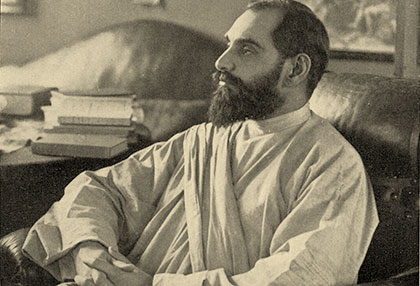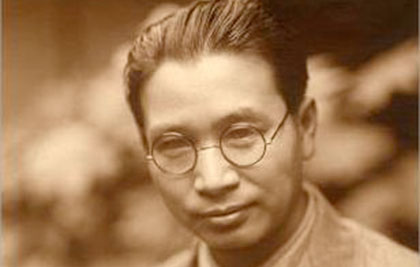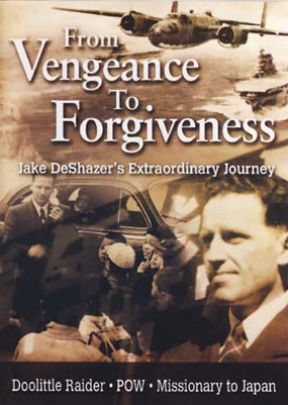
[ABOVE—Friedrich Heiler, Sadhu Sundar Singh Ein Apostel des Ostens und Westens (Munchen: Verlag von Ernst Reinhardt, 1925).]
When Sundar Singh’s mom died, the boy raged against the God of the Christians for, although a Sikh, he was being educated at a Christian school. Just fourteen years old, he formed a gang which harassed and persecuted believers. He burned a Bible to show his contempt for Jesus.
Children’s Heroes From Christian History: Vol. II includes stories on four heroes: William Carey, Robert Raikes, Hans Egede and Sundar Singh. Recommended for ages 5–10.
His actions brought him no peace, and he determined to know the truth or die. One night he spent several hours asking God—“If there is a God”— to reveal Himself. Otherwise, he planned to throw himself under an early train.
Near morning, Sundar had a vision of Christ which transformed his life. Eyes shining with joy, he hurried to tell his father. His father was baffled. Just days before his son had burned a Bible and now he was embracing Christ. He attempted to change Sundar’s mind, and when every strategem failed, he disowned the boy as a traitor to the Sikhs and even tried to poison him. Sundar survived, and became a yellow-robed “Sadhu” (holy man), wandering through India, Nepal and Tibet with the Gospel. By invitation, he also toured western nations to preach.
Christianity was not welcome in Hindu Nepal or in Buddhist Tibet. Sundar experienced many afflictions in his journeys to those places, and was imprisoned several times. He is thought to have died in 1929 when he ventured one last time into Tibet and was never heard from again.
The following is an account of his mysterious rescue from a death pit in one of his earlier mission trips to Tibet.
Excerpt from Mrs. Parker’s Sadhu Sundar Singh
With a deep determination to make the name of Christ known in this hostile country the Sadhu continued his work, knowing that sooner or later bitter persecution would be his lot. At a town called Rasar he was arrested and arraigned before the head Lama on the charge of entering the country and preaching the Gospel of Christ. He was found guilty, and amidst a crowd of evil-disposed persons he was led away to the place of execution. The two favorite forms of capital punishment are being sewn up in a wet yak skin and put out in the sun until death ends the torment, or being cast into the depths of a dry well, the top being firmly fastened over the head of the culprit. The latter was chosen for the Sadhu.
Arrived at the place he was stripped of his clothes, and cast into the dark depths of this ghastly charnel-house with such violence that his right arm was injured. Many others had gone down this same well before him never to return, and he alighted on a mass of human bones and rotting flesh. Any death seemed preferable to this. Wherever he laid his hands they met putrid flesh, while the odor almost poisoned him. In the words of his Savior he cried, “Why hast Thou forsaken me?”
Day passed into night, making no change in the darkness of this awful place and bringing no relief by sleep. Without food or even water the hours grew into days, and Sundar felt he could not last much longer. On the third night, just when he had been crying to God in prayer he heard a grating sound overhead. Someone was opening the locked lid of his dismal prison. He heard the key turned and the rattle of the iron covering as it was drawn away. Then a voice reached him from the top of the well, telling him to take hold of the rope that was being let down for his rescue. As the rope reached him he grasped it with all his remaining strength, and was strongly but gently pulled up from the evil place into the fresh air above.
Arrived at the top of the well the lid was drawn over again and locked. When he looked round his deliverer was nowhere to be seen, but the pain in his arm was gone, and the clean air filled him with new life. All that the Sadhu felt able to do was to praise God for his wonderful deliverance, and when morning came he struggled back to the town, where he rested in the serai [a fortified or walled village] until he was able to start preaching again. His return to the city and his old work was cause for a great commotion. The news was quickly taken to the Lama that the man they all thought dead was well and preaching again.
The Sadhu was again arrested and brought to the judgment seat of the Lama, and being questioned as to what had happened he told the story of his marvelous escape. The Lama was greatly angered, declaring that someone must have secured the key and gone to his rescue, but when search was made for the key and it was found on his own girdle, he was speechless with amazement and fear. He then ordered Sundar to leave the city and get away as far as possible, lest his powerful God should bring sonic untold disaster upon himself and his people. Thus was Sundar delivered from a fearful death, and praised God for interposing on his behalf.



